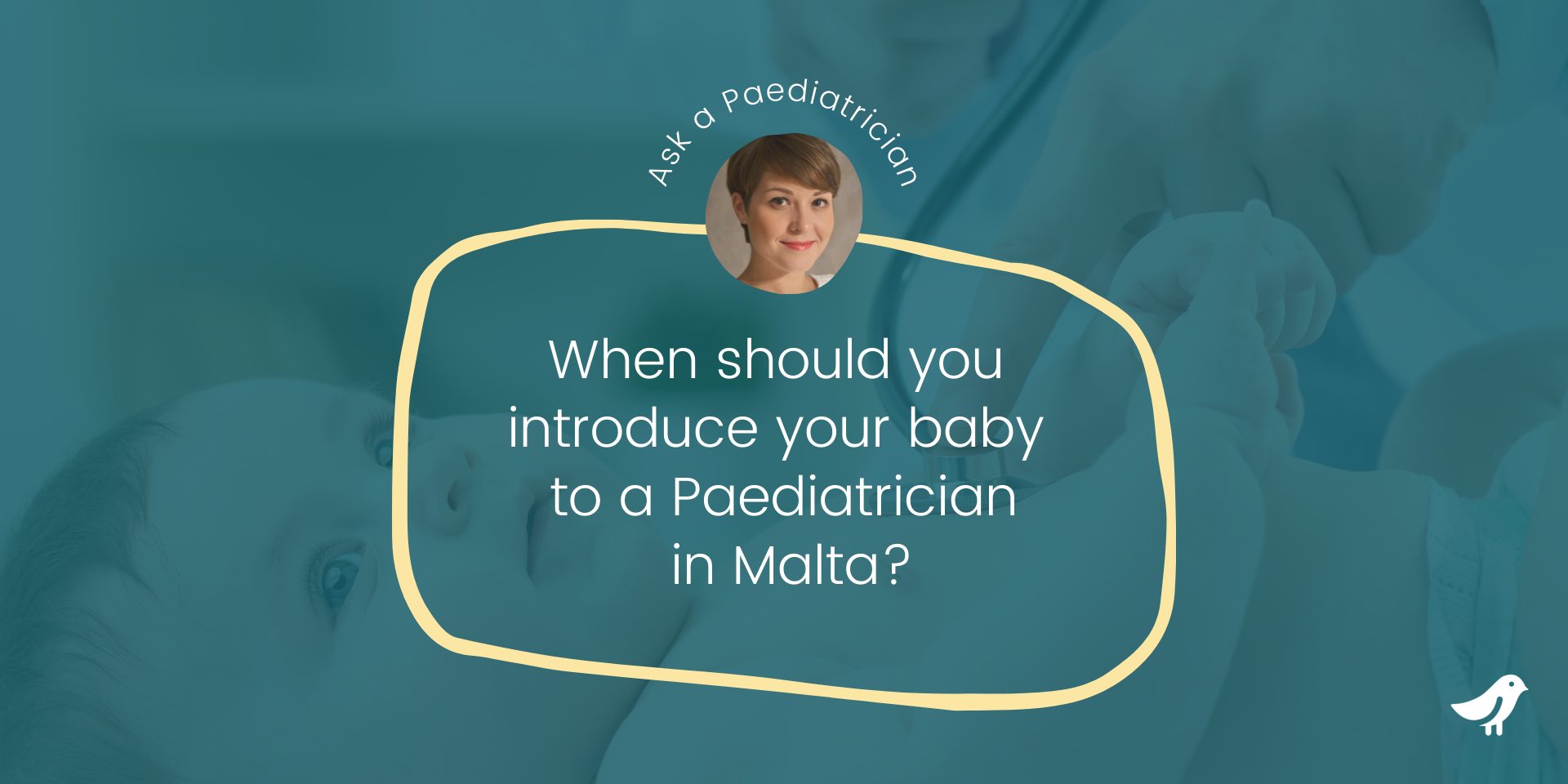 Dr. Alexandra Camilleri Warne is a paediatrician in Malta. She’s here to answer your questions on newborns, toddler health and more. In our first instalment of this series, we ask about the first appointments and when to switch to a GP.
Dr. Alexandra Camilleri Warne is a paediatrician in Malta. She’s here to answer your questions on newborns, toddler health and more. In our first instalment of this series, we ask about the first appointments and when to switch to a GP.
What are the key appointments you should know about?
Your baby gets two check-ups by a paediatrician in hospital, followed by three midwife visits at home. You can ask questions about both your and your baby’s health during these visits. A baby is weighed at birth and on discharge. You’ll then be asked to visit the breastfeeding clinic to see that the baby is growing well. If there are no issues I advise to touch base with your paediatrician at 3-4 weeks.
You will then have two free vaccine appointments with a paediatrician at the Well Baby Clinic. The first is at around 6 weeks to 8 weeks. Some paediatricians, like myself, offer the service of administering the free government vaccines at their private clinic. If this is the case for your paediatrician, you can opt to take these appointments privately.
If the parents opt to go to the Well Baby Clinic for the government vaccines, it’s important to note that there will still be some vaccines the government does not give for free. You will need to visit your paediatrician for these. At the Well Baby Clinic, a check-up is only done with the first set of vaccines and not any subsequent ones. If you wish, you can combine all vaccination appointments with a check-up at your paediatrician’s clinic.
How often should your baby see a doctor after that?
You would ideally get baby checked every month or so for the first 6 months. These check-ups will monitor weight, height, head size and development.
Weaning is discussed between 4 and 6 months. At around 8 months, you will have another free paediatrician appointment at the government Well Baby Clinic, which you can also do privately if you wish. From here on, I advise meeting around every 2 months until the age of one year. This may seem like a lot, but you should use these opportunities to ask any questions you may have. This also helps to ensure that any subtle signs of a possible condition are not missed.
Between the ages of one to two years I usually advise check-ups every 6 months, but as there are some vaccines that are not offered by the government, I usually tend to combine a check-up and vaccine administration together. There should also be a check before children start school at 3 years and thereafter a yearly check unless obviously the child is sick in between.
Until what age does a child see a paediatrician?
A paediatrician is a doctor who has specialised in child health. Once medical school is done a paediatrician studies and practises for another 6 or so years to specialise in child health specifically. Therefore it is safer for children to be seen by a paediatrician, especially in the early years. There are a lot of good GPs, but if you want the best for your baby, it is better to take him/her to a specialist who is familiar and up to date with the general well being, specific conditions and diseases that can affect the young. Not to mention the medications given specifically to babies and children.
A paediatrician is trained to take care of children ranging from newborns till the age of 18. This is one of the reasons why I chose paediatrics – the problems can be so varied, from colic in a tiny baby to a mental health issue in an adolescent. You can never get bored!
Your paediatrician will also know the history of the child from when the child was a newborn. This obviously helps the doctor treat the child better, while building a healthy relationship between the paediatrician and the child’s parents – and the patient – the child him/herself!
When do they switch to seeing a GP?
The age when you switch to a GP is ultimately up to the parents. My advice is to try to keep up the relationship with your child’s paediatrician for as long as you can. We are definitely trained and up for it and a good paediatrician knows his/her limits. They will refer a child if they feel they will be better treated by, say, another specialist.
This information, including but not limited to text, graphics, and images, is being provided for informational purposes only and should not be construed as official medical advice. Always seek the advice of your child’s paediatrician or other qualified health care provider for any questions or concerns you may have.
Follow us on Facebook and Instagram to make sure you don’t miss out on all our local parenting content.



